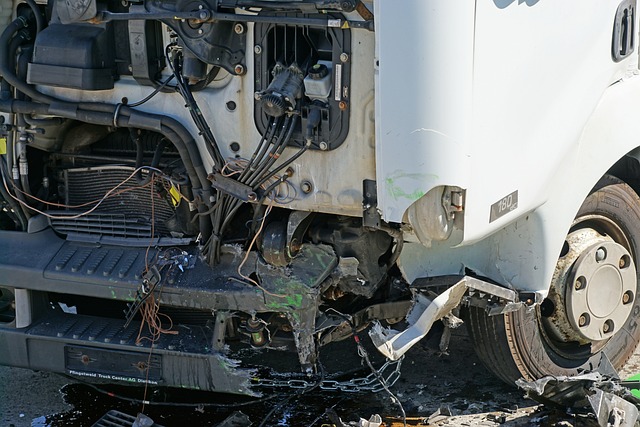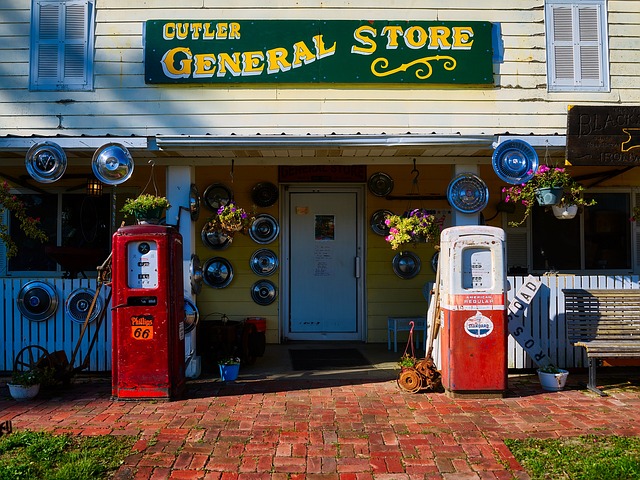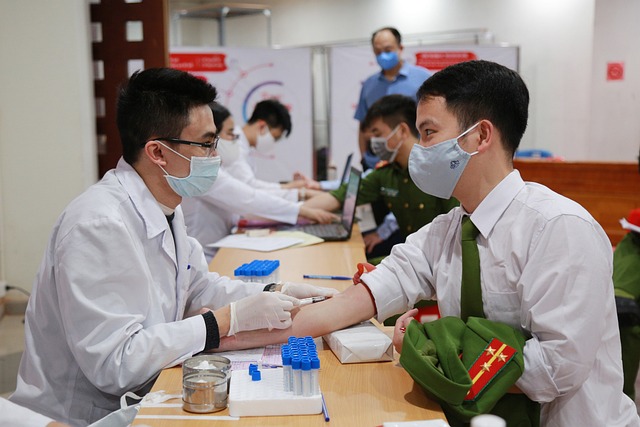General Liability (GL) insurance is a critical safety net for businesses, protecting against financial losses from bodily injury or property damage claims. Local GL providers offer tailored coverage for small businesses, fostering community trust and economic growth. Understanding key policy components like property, bodily injury, and personal injury liability is crucial for risk management. By proactively identifying risks and selecting the right local provider, businesses can navigate legal challenges with peace of mind, ensuring long-term success while contributing to their communities.
In today’s dynamic business landscape, understanding General Liability Insurance is crucial for any company aiming to protect itself from potential risks. This article delves into the essential aspects of General Liability, highlighting its coverage basics and how local providers play a pivotal role in community protection. We explore key risks faced by small businesses, types of liability claims, and the manifold benefits of local General Liability coverage. Additionally, we provide practical guidance on choosing a provider, comparing policies, and real-world examples of successful partnerships, empowering business owners to make informed decisions.
Understanding General Liability Insurance: Coverage Basics

General Liability insurance is a crucial safety net for businesses, protecting them from financial loss due to claims of bodily injury or property damage. This type of coverage is designed to help businesses cover legal fees and settlement costs if they’re sued. For instance, if a customer slips and falls on your premises, injuring themselves, General Liability insurance could step in to cover medical bills and any resulting legal expenses.
The policy typically includes several key components: property damage liability, which covers claims related to physical harm or destruction of someone else’s property; bodily injury liability, covering medical expenses and other losses arising from injuries sustained by others; and personal and advertising injury liability, protecting against claims linked to faulty products, incomplete projects, or offensive content. Understanding these basics is essential for any business owner looking to make informed decisions regarding their risk management strategy.
The Role of Local Providers in Community Protection

Local general liability providers play a pivotal role in safeguarding communities and fostering economic growth. They offer specialized insurance coverage tailored to the unique needs of local businesses, ensuring that small enterprises are protected against potential risks and liabilities. By providing accessible and affordable General Liability insurance options, these providers enable local companies to operate with peace of mind, knowing they are shielded from financial burdens associated with accidents, injuries, or property damage.
Moreover, the presence of local providers promotes a robust business environment. They contribute to community resilience by offering tailored solutions, quickly adapting to regional legal and economic landscapes. This localized approach enhances trust and encourages entrepreneurial spirit, allowing businesses to thrive without constant worry about unforeseen incidents that could cripple their operations.
Identifying Key Risks for Small Businesses

Small businesses often face unique challenges when it comes to managing risks and ensuring their long-term success. Identifying key risks is a critical step in mitigating potential liabilities and protecting business assets. One of the primary areas of concern for any small enterprise is General Liability, which covers claims of bodily injury or property damage caused by business activities. These incidents can arise from various sources, including slip-and-fall accidents on premises, product defects, or even third-party injuries related to business operations.
Understanding these risks is essential for businesses to make informed decisions about insurance coverage. By assessing their specific industry, location, and daily operations, small business owners can tailor their General Liability strategies accordingly. This proactive approach allows them to stay ahead of potential legal issues, financial losses, and the reputational damage that may accompany them.
Types of Liability Claims and How They Impact Businesses

Business operations inherently come with risks, leading to potential liabilities. General Liability (GL) insurance is a safety net that protects businesses against various claims. These claims can arise from different scenarios such as property damage, bodily injury, or personal and advertising injuries. For instance, if a customer slips and falls on your premises, they might sue for medical expenses and compensation for pain and suffering. Similarly, if an employee sustains an injury on the job, it could result in legal action and significant financial burdens for the business.
The impact of these liability claims can be severe, potentially causing financial strain, damage to reputation, and legal complications. GL insurance helps businesses manage these risks by providing coverage for legal fees, settlement costs, and medical expenses associated with such claims. It ensures that businesses can defend themselves against allegations and mitigate the consequences of unforeseen events.
Benefits of Having Local General Liability Coverage

Having local general liability coverage offers businesses numerous advantages, especially when dealing with potential risks and legal issues. This type of insurance protects against claims related to bodily injury, property damage, or personal and advertising injuries that may occur within a specific geographic area. Local coverage ensures that businesses are prepared for incidents that arise from their day-to-day operations and interactions with customers and clients in their community.
One significant benefit is access to faster and more efficient claim handling processes since local providers often have better knowledge of the region’s laws, regulations, and potential risks. This can lead to quicker resolutions and reduced legal fees. Additionally, supporting local insurers contributes to the economic growth and stability of the community, fostering a network of reliable resources for businesses to turn to in times of need.
Factors to Consider When Choosing a Provider

When selecting a Local General Liability provider, several key factors come into play. Firstly, understand your specific business needs and risk profile. Different businesses operate in diverse environments with unique potential liabilities; a provider should offer tailored coverage to align with these nuances. Secondly, assess the provider’s financial stability and reputation for claims handling. A solid financial foundation ensures they can meet their obligations over time, while a proven track record in claims administration demonstrates their competence and responsiveness.
Additionally, consider the level of customer service and support offered. Efficient communication, prompt responses, and accessible support channels are invaluable during times of crisis or when adjusting policies. Look for providers who offer transparent pricing structures, allowing you to budget effectively. Compare options to find a provider that offers competitive rates without compromising on quality, ensuring comprehensive General Liability coverage tailored to your local context.
Comparing Policies and Pricing Structures

When exploring local general liability providers, comparing policies and pricing structures is a vital step in ensuring adequate protection for your business. Each provider offers unique coverage options and price points, making it essential to scrutinize their terms and conditions closely. Start by identifying your specific needs; does your business require higher liability limits or additional endorsements? Understanding these requirements will help tailor your search to providers who offer specialized plans.
Next, examine the pricing models. General liability policies are often priced based on factors like industry, revenue, claims history, and level of risk. Request quotes from several providers and compare them apples-to-apples. Consider not only the premium cost but also any hidden fees or additional costs for specific coverage enhancements. This thorough comparison will empower you to make an informed decision, choosing a local provider who offers competitive pricing aligned with your business’s unique general liability needs.
Real-World Examples: Successful Local Liability Partnerships

Local partnerships between general liability providers and small businesses have proven successful in many real-world scenarios. For instance, a collaboration between a leading insurance company and a network of local artisans has resulted in enhanced service delivery. The partnership offers tailored General Liability coverage, catering to the unique risks faced by these craftspeople during events and sales. This strategic move has not only increased the artisans’ peace of mind but also fostered a sense of community and support among them.
Additionally, a similar model where local restaurants and cafes partnered with specialized General Liability insurers led to improved risk management practices. The partnership provided educational resources and customized policies, helping these businesses navigate the challenges of food safety, customer injuries, and property damage. As a result, both the providers and their clients benefited from reduced claims, increased stability, and a stronger local business ecosystem.
Resources and Steps for Obtaining Local General Liability Insurance

Obtaining local general liability insurance is a crucial step for businesses aiming to protect themselves against potential risks and legal liabilities. The first resource to consider is your state’s department of insurance, which provides comprehensive guides and resources on purchasing business insurance, including general liability coverage. These resources offer insights into navigating the insurance market, comparing policies, and understanding what’s included in standard general liability plans.
Additionally, local chambers of commerce and business associations can be invaluable allies. They often have partnerships with insurance providers and can offer tailored recommendations based on your industry and location. Networking with fellow business owners who have successfully navigated the process can also provide practical advice and insights. Moreover, consulting with an independent insurance agent or broker who specializes in small business coverage is beneficial. These professionals can help you assess your specific needs, compare quotes from multiple carriers, and ensure you’re getting the best value for your investment in general liability insurance.
